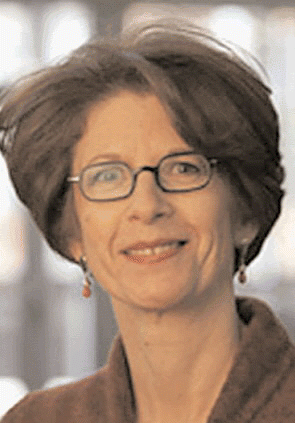 People who are the most successful in carrying out their own professional development are people who end up in senior and leadership positions.
People who are the most successful in carrying out their own professional development are people who end up in senior and leadership positions.Explore This Issue
January 2009-Linda Pololi, MBBS
Published in 2006 (BMJ Careers Jan 28, 2006:38-39), a full description of these steps is also available online at http://medschool.ucsf.edu/academy/faculty_development/CareerDevelopment.pdf .
Although Dr. Pololi admitted that this instrument could be used for anyone in any profession trying to carve out his or her career, she emphasized that most physicians and medical faculty have never gone through this reflective process and the failure to do so, she implied, has led to careers that may not be the best fit for people. Alternatively, she believes that use of this type of reflective process leads to leadership success.
People who are the most successful in carrying out their own professional development are people who end up in senior and leadership positions, she said.
Tips from a Surgeon
Patricia L. Turner, MD, Assistant Professor of Surgery at the University of Maryland School of Medicine in Baltimore, wears several leadership hats. She is an alternate delegate for the Young Physicians Section in the House of Delegates of the American Medical Association (AMA), and is a member of the Committee on Young Surgeons and the Patient Education Committee of the American College of Surgeons (ACS).
Holding these leadership positions, she says, has been critical to keeping her abreast of cutting-edge patient care information, providing the ability to network and interact with colleagues to advance medical science and patient care, and affording the chance to share research and practice skills.
Another important benefit of participating in leadership roles, she said, is the opportunity to be an advocate for health care issues. Emphasizing that physicians and surgeons are generally not very good at advocacy, she encouraged physicians to be more proactive in lobbying at the federal, state, and local levels on issues such as trauma system funding and development and medical liability reform.
According to Dr. Turner, one way that physicians can work toward a leadership role is by volunteering in the many associations available to them, including general medical associations such as the AMA, general specialty associations such as the ACS, regional societies, and subspecialties or special interest organizations. Using the ACS as an example, she said that one way to volunteer would be to help provide content for the ACS Web portal-a portal that allows members secure access to all the content of the entire house of surgery such as Medline papers, videos of operations, a case log system, continuing medical education (CME), membership services, and contacts with other fellows at the college. All this content, she said, needs to be constantly updated, and is a great way for physicians to volunteer and participate in the larger organization of medicine.
Leave a Reply